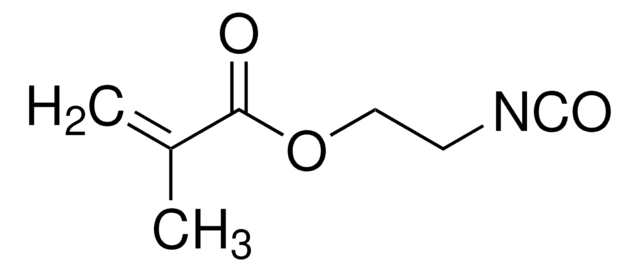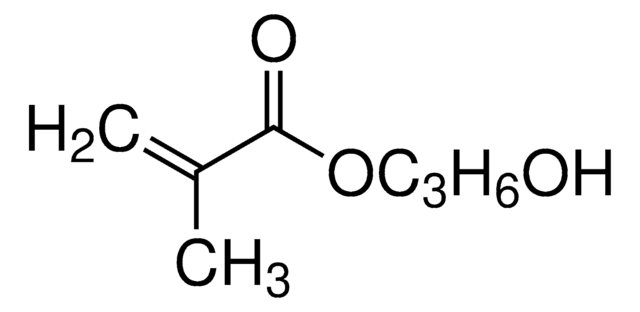361771
3-Isopropenyl-α,α-dimethylbenzyl isocyanate
95%, contains ≤200 ppm BHT as inhibitor
Synonym(s):
3-Isopropenyl-α,α′-dimethylbenzyl isocyanate, m -Isoprenyl-α,α′-dimethylbenzyl isocyanate
About This Item
Recommended Products
Quality Level
Assay
95%
form
liquid
autoignition temp.
838 °F
contains
≤200 ppm BHT as inhibitor
refractive index
n20/D 1.53 (lit.)
bp
268-271 °C (lit.)
density
1.018 g/mL at 25 °C (lit.)
SMILES string
CC(=C)c1cccc(c1)C(C)(C)N=C=O
InChI
1S/C13H15NO/c1-10(2)11-6-5-7-12(8-11)13(3,4)14-9-15/h5-8H,1H2,2-4H3
InChI key
ZVEMLYIXBCTVOF-UHFFFAOYSA-N
General description
Application
Signal Word
Danger
Hazard Statements
Precautionary Statements
Hazard Classifications
Acute Tox. 2 Inhalation - Aquatic Acute 1 - Aquatic Chronic 1 - Eye Dam. 1 - Resp. Sens. 1 - Skin Corr. 1B - Skin Sens. 1 - STOT RE 2 Inhalation
Target Organs
Lungs
Storage Class Code
6.1A - Combustible acute toxic Cat. 1 and 2 / very toxic hazardous materials
WGK
WGK 2
Flash Point(F)
>212.0 °F - closed cup
Flash Point(C)
> 100 °C - closed cup
Personal Protective Equipment
Choose from one of the most recent versions:
Already Own This Product?
Find documentation for the products that you have recently purchased in the Document Library.
Customers Also Viewed
Our team of scientists has experience in all areas of research including Life Science, Material Science, Chemical Synthesis, Chromatography, Analytical and many others.
Contact Technical Service















